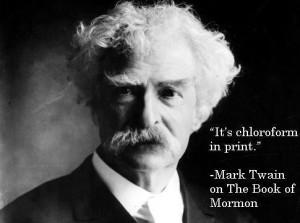As I prepare for a long weekend excursion where I won’t physically go anywhere but will mentally go everywhere, this assessment of my travel companions strikes me as fundamentally correct:
[Books] are the only medium for thick descriptions of the world that human beings possess. By “thick” description, I mean an extended, detailed, evidence-based, written interpretation of a subject. If you want to write a feature, or blog, or wikipedia entry, be it about the origins of the first world war; the authoritarian turn in Russia; or the causes and effects of the 2008 financial crisis, in the end you will have to refer to a book. Or at least refer to other people who have referred to books. Even the best magazine pieces and TV documentaries – and the best of these are very good indeed – are only puddle-deep compared with the thick descriptions laid out in books. They are “thin” descriptions and the creators and authors of them will have referred extensively to books to produce their work. Books are a different class of object, profoundly unlike magazines, newspapers, blogs, games or social media sites. The world they evoke is richer, more dense and, literally, more meaningful.
This probably explains why I don’t do TV, dumb-phones, texts, social media, tablets, apps, news, streaming, and all that connected-cacophonous tech jazz. These so pale in comparison to deep immersion in books that I’ve come to see all of them as irritants and annoyances.
The irony of this assessment is that the author, Toby Mundy, is writing about tech-futurist predictions that books are doomed and Amazon is trying to kill the book business. As I read this, I was looking at a large stack of (mostly used) books that would have been hard or impossible to find and expensive to buy before Amazon. The book world has never been better for Luddites.
The television world, for its part, has long been doomed. I’m not sure if things are going to get better or worse with the new “Atheist TV” channel reported in the New York Times. The impetus for the new channel is reasonable disgust over what passes for “science” and “history” on channels ostensibly devoted to these subjects:
“The TV networks kowtow to the liars who make money off of misinformation,” the president of American Atheists said, singling out for special contempt outlets that mix silly supernatural gunk with more serious science and nature shows. “The Discovery Channel treats ghosts like they’re real,” he said, adding later, “Bigfoot, psychics, aliens, ghosts, spirits, gods, devils — all bunk, all pushed by the so-called truthful and scientific stations in an effort to placate the waning religion segment at the expense of the growing segment of atheists who should be, but are not, their target audience.”
It would indeed be nice to have a channel that airs actual science, history, anthropology, psychology, etc., and which interrogates “religion” through the lenses of evolution and cognitive science. But I seriously doubt, based on the following description, that we will get anything along these lines: “At first, Atheist TV will be limited, offering interviews with leading atheists, film from atheist conventions and other content from the Richard Dawkins Foundation and like-minded organizations.” How dreadful. It sounds like the New Atheist equivalent of digital chloroform and just another reason not to watch TV. Books will have to do.


